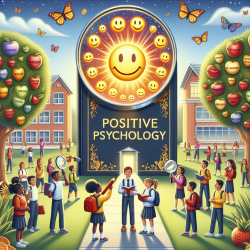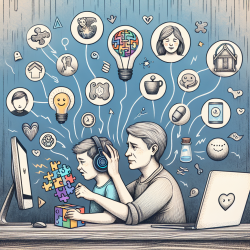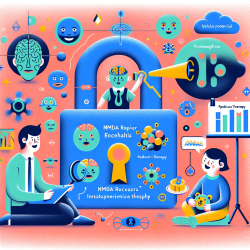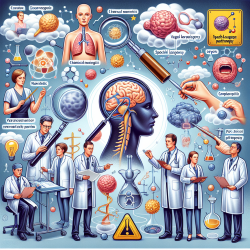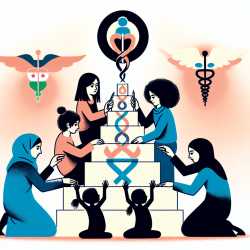Introduction
In the realm of speech-language pathology and educational interventions, the significance of mental health literacy cannot be overstated. Adolescents in Western countries face high prevalence rates of depressive symptoms, yet many do not seek help due to barriers like low mental health literacy and high stigma. The study titled A Game-Based School Program for Mental Health Literacy and Stigma on Depression (Moving Stories): Cluster Randomized Controlled Trial offers insightful data on addressing these barriers through innovative methods.
The Study: An Overview
The research conducted by Tuijnman et al. (2022) involved 185 adolescents from four schools, divided into control and experimental groups. The experimental group participated in the Moving Stories program, a game-based intervention designed to enhance mental health literacy and reduce stigma. The program included a video game component and a contact session with someone who has lived experience with depression.
Key Findings
- Stigma Reduction: The study found that the Moving Stories program significantly reduced personal stigma related to depression in adolescents. This effect was observed immediately after the program and sustained at a three-month follow-up.
- Engagement and Adherence: The program was well-received by participants, with high adherence rates. Most adolescents completed the program and expressed willingness to recommend it to peers.
- Challenges in Mental Health Literacy: Despite the positive outcomes in stigma reduction, the program did not significantly impact mental health literacy components such as symptom recognition and help-seeking intentions.
Implications for Practitioners
For practitioners in speech-language pathology and educational settings, these findings underscore the potential of game-based interventions in reducing stigma. However, to enhance mental health literacy effectively, additional strategies may be required. Practitioners are encouraged to consider the following:
- Incorporate Didactic Elements: Combining interactive game-based learning with traditional didactic sessions could enhance knowledge retention and application.
- Tailor Interventions: Customizing programs to fit the developmental stage and experiences of adolescents may improve engagement and effectiveness.
- Long-term Engagement: Implementing booster sessions or follow-up activities could sustain the benefits of initial interventions.
Encouraging Further Research
The study highlights the need for continued research into innovative educational interventions for mental health. Future studies could explore the effects of such programs on diverse populations and settings, as well as the integration of digital tools with face-to-face interactions.
To read the original research paper, please follow this link: A Game-Based School Program for Mental Health Literacy and Stigma on Depression (Moving Stories): Cluster Randomized Controlled Trial.




